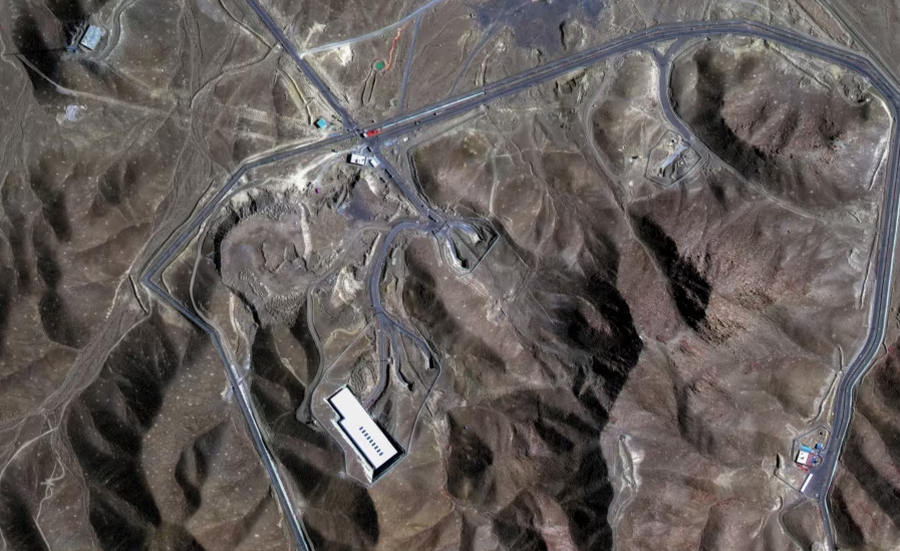
The United States and Iran are in ongoing contact to resume talks on Tehran's nuclear program but have not yet scheduled formal talks, officials from both countries said late Thursday.
Washington is "in close communication" with Iran and its intermediaries, White House spokeswoman Caroline Leavitt said at a press conference, while Iranian Foreign Minister Abbas Araqchi told state broadcaster IRIB that diplomacy is continuing and contacts are taking place through various channels.
Araqchi added that no "agreement, arrangement or conversation to start new nuclear talks" has been made.
He stressed that Iran is now assessing what is best for its national interests, adding that "rumors" that Tehran will return to the negotiating table "should not be taken seriously."
US President Donald Trump, speaking at the NATO summit in The Hague on June 25, said that Washington will hold talks with Tehran next week.
The sixth round of US-Iran talks in Oman, scheduled for June 15, was canceled after Israeli forces carried out strikes on Iranian targets on June 13.
Speaking to IRIB, Araqchi confirmed that last weekend's attacks by US forces caused "significant" damage to Iran's nuclear infrastructure.
Araqchi's comments come just hours after Iran's constitutional watchdog, the Guardian Council, approved Parliament's decision to suspend Tehran's cooperation with the International Atomic Energy Agency (IAEA).
The Supreme National Security Council (SNSC) will finally decide on this law, which was approved the day before by lawmakers with 221 votes in favor and none against.
The SNSC is technically headed by the president, but like all key state institutions, it answers to the supreme leader, Ayatollah Ali Khamenei.
"The plan to force the government to suspend cooperation with the International Atomic Energy Agency was not contrary to Islamic law and the Constitution after review by members of the Guardian Council," the council's spokesman, Hadi Tahan Nazif, said in a post on X.
Israel carried out unprecedented attacks on key Iranian nuclear and military facilities, as well as residential areas, on June 13, in a war that claimed many civilian lives on both sides before ending with a fragile ceasefire brokered by the United States on June 24.
The suspension of cooperation with the IAEA means that Iran will stop inspections, reporting and monitoring activities under the Treaty on the Non-Proliferation of Nuclear Weapons (NPT).
Before the vote, Parliament Speaker Mohammad Baqer Qalibaf criticized the IAEA, saying it failed to "even pretend to condemn the attack on Iran's nuclear facilities" and accused it of "selling out its international credibility."
Tehran has long accused the IAEA of bias and collaboration with Western powers and Israel against Iran.
The bill provides that the suspension of cooperation will be lifted only if it is guaranteed that Iranian nuclear facilities and scientists are protected and that Iran's right to enrich uranium domestically is guaranteed.
IAEA Director General Rafael Grossi has for years expressed concern about Iran's lack of cooperation in investigations into old, but undeclared, nuclear facilities.
"The Atomic Energy Organization of Iran will suspend cooperation with the agency until the security of nuclear facilities is guaranteed, and Iran's peaceful nuclear program will move forward at a faster pace," Qalibaf said in comments that were followed by lawmakers chanting "death to America and Israel."
French President Emmanuel Macron said the "worst case scenario" would be if Tehran were to now withdraw from the Nuclear Non-Proliferation Treaty.
Macron told reporters in Brussels after an EU summit that in an effort to preserve the treaty, he would speak in the coming days to the five members of the UN Security Council.
These talks have already begun with a call to the White House on June 26, in which he informed President Donald Trump of the contacts that Paris has had with Tehran "in recent days and hours."
"Our hope is that there will be a real convergence of views," Macron said, adding that the goal is "that there will be no resumption" of nuclear construction by Iran.
Iran ratified the Nuclear Non-Proliferation Treaty (NPT) in 1970, committing to declare its nuclear material to the International Atomic Energy Agency./ REL (A2 Televizion)











